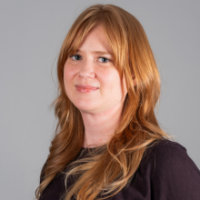
Overview
Women face multiple barriers during their entire life, resulting in gender gaps in education, skills, labor force participation, wages, wealth, and agency. Aligned with SDG 5's objective of achieving gender equality and empowering women and girls, the Development Impact Group Gender Program focuses on understanding the key challenges and constraints that women face throughout the life cycle, and exploring mechanisms that can bring about gender equity and empower women for better economic development. The main goal of the Development Impact Group Gender program is to design, implement, and disseminate a well-coordinated portfolio of gender-specific interventions targeting women, as well as study the effects of gender-neutral interventions on women’s outcomes. Development Impact Group Gender also collaborates with governments and partners to develop, implement, and test innovative solutions, aiming to address barriers women face and close gender gaps.
Themes
Development Impact Group Gender focuses on four thematic areas, representing some of the key obstacles that women face throughout life:
Social Norms and Behavioral Change
Challenging adverse social norms and expectations about gender roles and power relations, the Development Impact Group uses community-based approaches and behavioral change campaigns, including entertainment education (edutainment) programs, to reshape harmful norms surrounding roles and masculinities, particularly regarding sexual behavior, parental roles, aspirations of girls, and adolescent pregnancy. In Nigeria, exposure to the TV drama MTV Shuga, which provided information on HIV and risky sexual behavior, increased HIV testing and reduced sexually transmitted infections and gender-based violence among urban viewers. Similarly, in northern Nigeria, exposing parents to aspirational videos of roles models positively reshaped their attitudes and norms towards girls’ education. In India, a social media campaign to reshape gender norms and reduce social acceptability of violence against women demonstrated the potential and effectiveness of social media to combat these issues at scale.
Human Capital and Skills
Investing in human capital and skills development is crucial for increasing female access to education and economic opportunities. The Development Impact Group identifies barriers to girls’ education and explores mechanisms that promote gender equity and women’s socio-economic empowerment. In DRC, a comprehensive diagnostic identified constraints to girls’ education and provided policy recommendations for keeping girls in school. Partnerships in DRC and Nigeria assess the effectiveness of life skills training through Girls Clubs on school retention and learning outcomes. Additionally, collaborations with E3empower in Tanzania focus on programming literacy to enhance interest in STEM and socio-emotional learning among young women. The Development Impact Group's work in Nigeria demonstrates the employment and earnings benefits of skills training for vulnerable female youth while multi-country partnerships with WFP evaluate public works programs' impact on women's social and economic empowerment in El Salvador, Haiti, Kenya, and Rwanda.
Violence Against Women
Violence against women and girls impedes their societal participation, limits education and economic access, reduces physical mobility, and undermines gender equality efforts. The Development Impact Group’s work in Delhi (India), one of the places with the highest rates of sexual harassment in public spaces, reveals women choose lower-quality schools to avoid sexual violence while commuting, thereby lowering their labor force participation and expected earnings. Similarly, research finds that women in Rio de Janeiro (Brazil) face harassment 1.5 times every week during their daily commute on public transit and are willing to pay a premium of 10% of daily travel fare to avoid harassment. The Development Impact Group also focuses on innovative solutions for gender-based violence, such as developing a safety response system mobile app in Dar es Salaam (Tanzania) to improve the measurement and reporting of violence against women in public transportation.
Legal and Institutional Factors
Worldwide, women face legal and institutional barriers restricting their access to and control over assets and limiting their voice and agency. The Development Impact Group’s work identifies the legal and institutional factors that hinder and promote gender equality. For instance, in Peru, improving women’s access to justice through women’s justice centers reduced gender-based violence by 10% and increased reporting and prosecutions for gender-specific crimes by 40%. Similarly, studying Bangladesh's garment industry, the Development Impact Group found that promoting women into management positions enhanced household decision-making power for both promoted women and their female subordinates, who viewed the promoted women as role models.
Partnerships
To bridge the gap between research and practice, Development Impact Group Gender collaborates with governments and external partners to help countries develop, implement and test innovative solutions to address the multiple barriers that women face throughout the life cycle and close gender gaps. Key partners include the European Union (EU), UK's Foreign, Commonwealth, and Development office (FCDO), the Norwegian Agency for Development Cooperation (NORAD), the World Food Programme (WFP), the Global Partnership for Education, and the International Finance Corporation (IFC). To learn more about our partnership with WFP click here.




